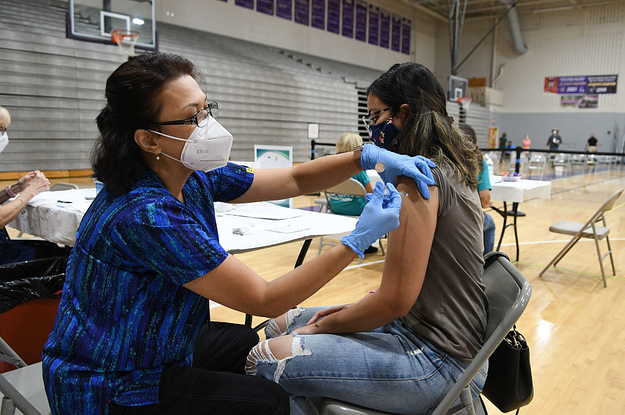Premier Dan Andrews is to release Victoria’s roadmap out of lockdown a day after protests in Melbourne, Sydney, Byron Bay and Brisbane. Follow updates live
- Covid vaccine rollout and rates tracker; Cases, trends and data tracker
- Get our free news app; Get our morning email briefing
The Queensland premier, Annastacia Palaszczuk, is holding a press conference in Brisbane. The state has recorded no new cases of Covid-19 in the community or in hotel quarantine.
Palaszczuk is urging people to get vaccinated after the state controversially made the Pfizer vaccine available to over 60s. She’s urging people to attend walk-in Pfizer clinics.
This is an interesting piece on the people for whom the end of Covid restrictions sparks fear rather than joy.
Racquel Sherry, 49 and based in Sydney, is immunocompromised and afraid.
In the roadmap to freedom, I hear nothing about people like me, other than as a qualifying postscript to the Covid deaths: ‘But they had an underlying health condition’.
Freedom day doesn’t include me.
Related: ‘Freedom day doesn’t include me’: for some, the end of lockdown will be a time of fear
Continue reading...